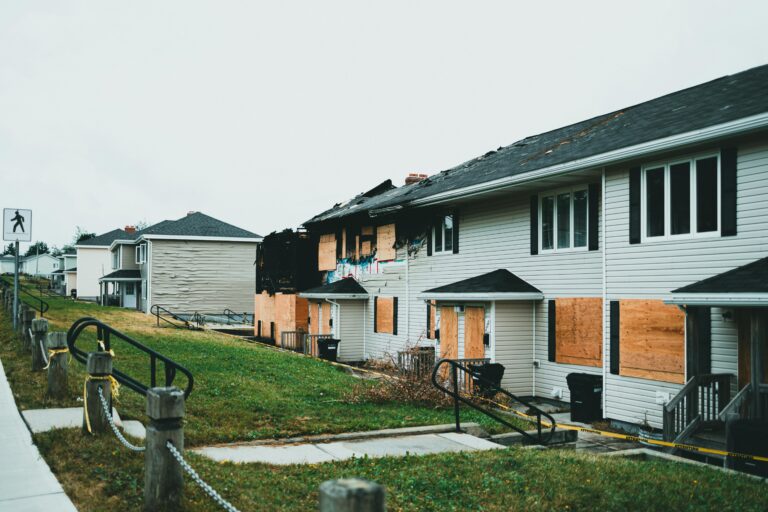Will My Landlord Know If I Cancel Renters Insurance? Understanding the Consequences
Will my landlord know if I cancel renters insurance? Learn the risks, potential consequences, and how landlords monitor renters’ insurance compliance.
Renters insurance is often a requirement in many lease agreements, especially in properties owned by professional landlords or property management companies. This type of insurance helps protect tenants from financial loss due to unforeseen events like theft, fire, or liability claims. However, some tenants may wonder: Will my landlord know if I cancel renters insurance? This article will explore the potential consequences, how landlords track insurance policies, and why maintaining renters insurance is crucial for both parties.
What Is Renters Insurance?
Before diving into the risks of canceling your renters insurance, it’s essential to understand what this insurance covers. A standard renters insurance policy provides coverage for:
- Personal property : Protects your belongings (furniture, electronics, clothing) in case of fire, theft, or water damage.
- Liability : Covers legal expenses if someone is injured on your property or if you accidentally damage someone else’s property.
- Additional living expenses : Helps with temporary housing costs if your rental becomes uninhabitable due to a covered event (like a fire).
Renters insurance offers peace of mind and financial protection against incidents that might otherwise leave tenants struggling with out-of-pocket costs.
Will Your Landlord Know If You Cancel Renters Insurance?
In many cases, yes, your landlord will know if you cancel your renters insurance. Here’s how they can find out:
- Required Proof of Insurance : Many landlords request proof of insurance at the start of your lease. This ensures compliance with lease requirements that mandate renters insurance. If you cancel the policy later, the insurance company will notify your landlord.
- Additional Interest Clause : Some landlords require that they be listed as an “additional interest” on your renters insurance policy. This means that the insurance company must inform them if the policy is canceled, lapsed, or altered in any way. The “additional interest” does not grant the landlord insurance benefits, but it serves as a notification system for policy changes.
- Direct Communication with Insurers : In some cases, landlords maintain ongoing communication with insurance providers to ensure that tenants continue to meet the insurance requirements throughout their lease period.
What Happens If You Cancel Renters Insurance?
Canceling your renters insurance could have several repercussions, depending on the terms of your lease and your relationship with your landlord.
Breach of Lease Agreement
If renters insurance is required by your lease, canceling your policy without your landlord’s knowledge could put you in breach of the agreement. This could result in penalties or even eviction. It’s essential to check your lease terms carefully to understand the specific consequences.
Financial Exposure
Without renters insurance, you’re exposing yourself to significant financial risk. For example, if someone sues you for an injury that occurs in your rental, or if your personal belongings are stolen, you’d have to cover all costs out of pocket.
Landlord Actions
Upon discovering that you’ve canceled your renters insurance, your landlord may take the following actions:
- Demand reinstatement : The landlord may require you to reinstate your renters insurance or face eviction.
- Procure insurance on your behalf : Some landlords may purchase renters insurance for you and then pass the cost on to you as additional rent or fees. This type of insurance is often more expensive and may offer less coverage than a policy you could obtain independently.
- Terminate the lease : In extreme cases, if you refuse to comply with the insurance requirements, your landlord could terminate your lease and pursue legal action.
Benefits of Keeping Renters Insurance
Though renters insurance may seem like an additional expense, maintaining a policy has numerous benefits that far outweigh the risks of canceling it.
Liability Protection
Renters insurance protects you from lawsuits if someone is injured in your apartment. Without it, you’d have to pay legal fees and damages, which could amount to thousands of dollars.
Protection for Personal Belongings
If a fire, theft, or another disaster strikes, renters insurance helps you replace lost or damaged personal property. The cost to replace electronics, furniture, and clothing can add up quickly, making insurance a worthwhile investment.
Temporary Housing Costs
In the event of a covered disaster (like a fire), renters insurance covers the cost of temporary housing until your rental is habitable again. This saves you from the stress and expense of finding alternate accommodations on short notice.
How to Reinstate or Switch Renters Insurance
If you’ve canceled your renters insurance but realize that you need it, reinstating or switching policies is straightforward.
- Contact Your Insurer : Reach out to your previous insurance provider to see if your policy can be reinstated. If not, request quotes from other companies.
- Get a New Policy : If reinstatement isn’t possible, you can quickly obtain a new policy online. Many insurance companies offer instant quotes and coverage.
- Notify Your Landlord : Once you’ve secured a new policy, provide proof of insurance to your landlord. This will prevent any potential lease violations.
Conclusion
So, will your landlord know if you cancel renters insurance? In most cases, yes. Landlords often have systems in place to monitor renters insurance policies, and canceling your coverage can lead to serious consequences, including lease violations, financial risks, and eviction. Renters insurance offers essential protection for your personal belongings, liability, and temporary housing needs. Rather than risk the potential fallout, it’s in your best interest to maintain continuous coverage or promptly inform your landlord if changes need to be made.
FAQs
Can my landlord force me to get renters insurance? Yes, if it’s stated in the lease agreement. Many landlords require renters insurance to protect their property from liability claims and damages.
What happens if I don’t list my landlord as an additional interest? If your landlord requires it, not listing them could violate your lease. They might not be notified of policy changes, leading to penalties if insurance lapses.
Is renters insurance mandatory everywhere? No, renters insurance isn’t required by law, but many landlords include it as a term of the lease. It’s essential to check the lease to determine if it’s required.





